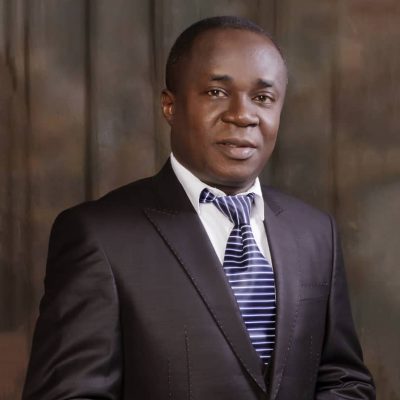By Uche Uwaleke
As part of the tightening measures, the CBN has been carrying out “regular Open Market Operations (OMO) to mop up excess liquidity from the banking system”. As a matter of fact “an OMO auction was recently held with a stop rate of 17.5% for the one year tenure”, he says. The Bank has also removed “the cap on the remunerable Standing Deposit Facility (SDF) to increase activity in the SDF window and manage liquidity”.
These aggressive tightening measures end up turbo-charging the interest rates environment thereby shrinking credit to the real sectors of the economy and are therefore inconsistent with his expectation of “an increase in the GDP growth rate to 3.97% in the fourth quarter” of 2023.
By his own admission, challenges in the economy “have led to increased interest rates, discouraging investments in productive activities”.
He equally notes that “countries such as Turkey and Argentina have experienced upward inflationary pressures mainly due to supply shocks, despite several policy rate adjustments”.
Mr Cardoso asserts that “our monetary policies will aim to achieve price stability, foster sustainable economic growth, stabilize the exchange rate of the naira and reduce interest rates to facilitate borrowing and investments in the real sector”.
This statement fails to take into cognizance the policy trilemma facing central banks. Monetary policy tightening may succeed in reducing inflation (especially if caused by monetary factors) and stabilize the exchange rate but not a reduction in interest rates simultaneously. This is an economic reality.
Mr Yemi cites Brazil, Mexico, and Indonesia as examples of countries “with low unemployment rates of 7.8%, 3.1%, 5.4% respectively”. According to him, “these are unemployment levels that we in Nigeria should aspire to achieve”. This statement contradicts the NBS new methodology and its latest unemployment figure of 4.1% which is below that of Brazil and Indonesia.
In paragraphs 26 and 27, the CBN Governor talks about developments in the payments landscape but missed the opportunity to promote the eNaira and disclose its current status.
The 30-page speech found no space for other key projects of the Bank, such as the InfraCo and the RT200 programme designed to improve forex supply.
Much as the plan to refocus the CBN is laudable, every effort should be made not to throw away the baby and the bath water. READ ALSO:
- NIPC’s initiatives will ensure sustainable economic growth – Aisha Rimi
- Winners emerge for Project Tourism Africa maiden edition
- UK-Based Podcaster, Tolani Soneye, Engages Tiwa Savage On Motherhood, Career, Marriage
- Sanusi: Radical Emir In A Conservative City
- ECOWAS gives Burkina Faso, Mali, Niger six months to reconsider withdrawal
Be that as it may, Mr Yemi Cardoso, in paragraph 30, makes a statement I consider the most impactful where he says “It is crucial to give the same visibility to human condition data as we do to macroeconomic data to ensure that the expected economic progress benefits the masses and helps lift them out of their current dire conditions”.
This indelible statement should guide the path of monetary and fiscal policies going forward.
Uwaleke is Nigeria’s first Professor of Capital Market


